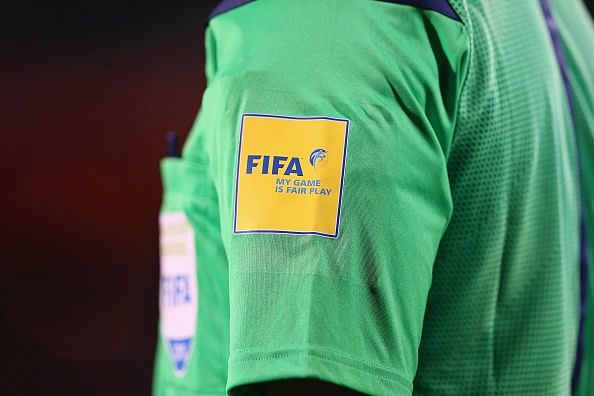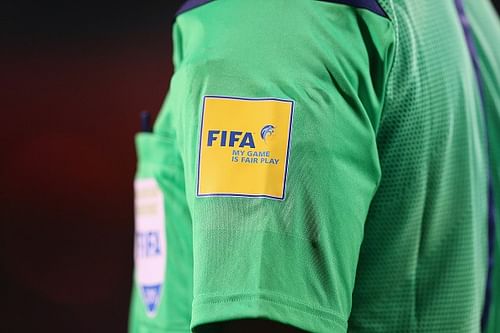
SK Bhattacharya: The End of a Glorious Era

The six Indian referees who are on the FIFA panel, Pratap Singh Patwal (Uttrakhand), Pranjal Banerjee (Bengal), Tejas Nagvenkar (Goa), Armugham Rowan (Services), Rahul D’Sa (Mumbai) and MB Santosh Kumar (Kerala) are handsomely rewarded when they supervise the Hero Indian Super League (ISL) matches. They get a whopping Rs. 11,000 per match plus generous per diems and hospitality. Being a full time referee in India is now a viable financial option. The All India Football Federation (AIFF) is also encouraging professional referees who get monthly retainers. There are now over a dozen full time referees and assistant referees in India.
How times have changed. The late great Sailendra Kumar Bhattacharya, who died in near penury at the age of 87, in Chandanagar, Hooghly district Bengal on 8 December, was one of India and Asia’s greatest referees in the 1960s. Yet at his prime for supervising a Durand Cup final he got Rs. 10 per match. In his twenties he moved to Delhi as he got a job in the President’s Estate. He retired from there as an administrative officer (AO). During his long stay in the capital, he would regularly supervise matches in the Delhi Football Association league in the hot and sultry summer months for Rs. 1 and later Rs. 1.50 per match.
SK Bhattacharya belonged to an age gone by. For him being a football referee was a passion. He would always strive for excellence. Professionalism these days is often associated with money. For an earlier generation of Indian referees, professionalism was a matter of pride. His judgments were impeccable, his fitness remarkable though he went to no gymnasium or sauna baths. He kept fit by occasional jogging and some free hand exercises.
Besides football his other passion in life was playing cards at the Kalibari in Gole Market, Delhi. After supervising or watching football matches he invariably went to this oldest Kalibari in the capital. It was a like a second home to him, his favourite “Adda” where he would mingle and converse with friends. For many years he served as secretary and joint secretary of the Gole Market, Kalibari.
On the field the short statured SK Bhattacharya was a bundle of energy. Nimble and energetic he was always near the ball and so quickly spotted infringements. His whistling was loud, clear and prompt. He controlled matches in days before the yellow and red cards existed, by his magnetic personality. With a stern expression on his face and bulging eyes he would severely reprimand players who committed vicious fouls. He was respected by all players, whether local or international. Even notoriously rough and hard tackling Indian players never doubted his integrity as he had a reputation for being impartial and knowledgeable.
Fitness, quick thinking, accurate assessment of fouls, the ability to let the game flow and a strong personality were his greatest assets. When the whistle was in his mouth, subjective feelings were suppressed even though he was a passionate Mohun Bagan supporter. Yet whenever there was a Mohun Bagan—East Bengal final in Delhi, the secretary of the Durand Football tournament committee the late Wing Cdr. KK Ganguly invariably asked him to supervise this tension packed, tough to control, derby match.
In the 1970 Durand final, East Bengal outwitted Mohun Bagan 2-0 in the final. Bagan’s players were getting frustrated as they were being out-run by the fleet-footed forwards of East Bengal, Swapan Sengupta, Ashok Chatterjee, Mohd Habib and Shyam Thapa. Two, disgruntled Bagan players Subash Bhowmick and Sukalyan Ghosh Dastidar kept trying to mentally pressurize SK Bhattacharya into giving favourable decisions for their side. He ignored them for some time but when the protests continued he silenced them with a witty repartee, “aami ki tumhar shatru” (What do you think I am your enemy), followed by “football khelo! Tumhi amake nirash kore cho”. (Play football! you have broken my heart also).
It is human to err and he made crucial mistakes also. The 1960 DCM final was a tension-packed, free flowing encounter between star studded East Bengal and Mohammedan Sporting. After conceding two early goals, Mohammedan Sporting fought back to make it 1-2. Then East Bengal’s wily inside forward B. Narayan controlled an awkward bouncing ball with his hand and scored with a deft placement. SK Bhattacharya was the referee and somehow could not spot the infringement. He allowed the goal despite vociferous protests from the Mohammedan Sporting players and fans. This was an error of judgment but SK Bhattacharya was never accused of partiality, such was his reputation.
He was always in demand and supervised finals of the IFA Shield in Kolkata, Rovers Cup in Mumbai, DCM and Durand Cup in Delhi and numerous Santosh trophy finals. He also supervised the 1961 Merdeka Cup tournament in Kuala Lumpur but his greatest hour was the 1968 Asian Cup final rounds in Tehran. His brilliant supervision and fitness was appreciated by the fans and the media alike. The late Shah of Iran also praised SK Bhattacharya and wanted to reward him with gold tablets. Due to stringent rules of the Indian Customs, in those days, SK Bhattacharya refused to accept the gift. Later the Shah of Iran asked the Iranian embassy in Delhi, to deliver the gift of gold to his residence in Old Rajinder Nagar.
His reputation for honesty was maintained not only by his professional work ethic but also by his principled lifestyle. When he was on an outstation assignment supervising a crucial tournament final or semi final he never disclosed to his friends in which hotel he was staying. In Kolkata, where there is always palpable tension before an East Bengal vs Mohun Bagan match he always kept a low profile. He would talk with friends on the phone but not visit them till after the match.
In Delhi, the most popular Bengali club was Raisina Sporting, local league champions in 1962 and 1963. The club officials and players always had an annual picnic either at Badkal Lake or Okhla or Qutub Minar but whilst he was an active referee SK Bhattacharya never joined this annual outing in case he was accused of partiality. Raisina Sporting had their club room in the Gole Market Kalibari. For fifteen years, during career as a referee he never stepped into the club room. The place where he worked President’s Estate also had a good football team. They were Delhi league champions in 1966 and 1967 but he never attended their annual get-togethers.
Even after his refereeing career was over he was involved in helping young referees in Delhi. He was a meticulous teacher and analysed the game excellently. After a match he would tell referees what mistakes they had made and guide them how to get better.
He was always immaculately dressed, a bow tie, coat and cuff links on his shirt-sleeves in the winter and smartly creased trousers and shirts in the summer months. He had a collection of elegant wrist watches and smart shoes. SK Bhattacharya believed in sartorial elegance.
Sadly the last years of his life ended in misery. He married when young but never had children. So some years after retirement, as old age approached at the behest of his nephew he moved to Chandanagar. In 1997 he left Delhi where he had a large number of friends. This was probably a mistake as he was greatly admired in the capital’s football fraternity and his advice was always sought.
The move to Chandanagar did not click. Family and property disputes led to the gradual vanishing of his savings. He moved into a small rented house and survived on his monthly pension. Gradually his health declined, he developed Alzheimer’s disease and the once dapper dresser became impoverished, looked after by a local referee and some neighbouring women.
SK Bhattacharya belonged to a golden generation of Indian referees, like Pratul Chakraborty, L.N. Ghosh (both Bengal) and Alex Vaz (Mumbai). As two month-long, national tournaments, DCM and Durand were held annually in Delhi there were along with SK Bhattacharya several good referees in the capital also like KG Kakkar, Ikram-ul-Haq, TN Lau, BS Chauhan and in the 1970s Melwyn D’Souza. Ikram, Lau and Kakkar have all expired and with the passing away of SK Bhattacharya, a page of history has turned forever. With his death, it is the end of an era of a golden generation of Indian referees.